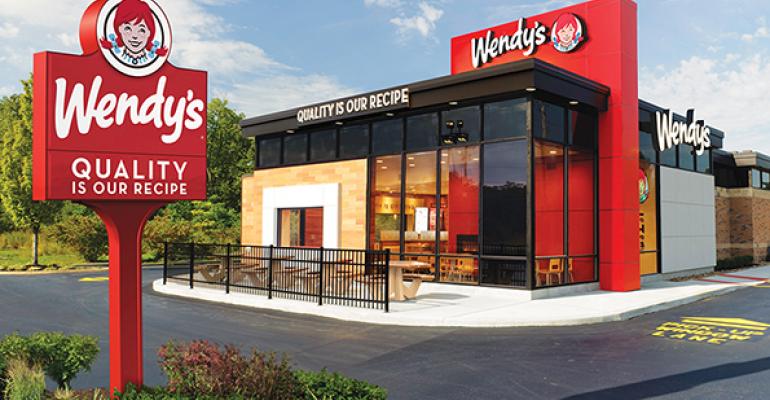One of Wendy’s largest franchisees, whom the operator is suing over its refusal to remodel restaurants, has countered that the franchisor’s “Image Activation” program is “economically unfeasible.”
In a counterclaim this week in response to the lawsuit, DavCo was highly critical of Wendy’s remodeling program, saying its high costs make it difficult for the remodels to yield a return for operators.
“In the four years since the introduction of the Image Activation concept, there have been no fewer than eight different remodel designs, with a ninth just added for remodeling of certain lower volume restaurants,” the lawsuit said. “The reason so many different design iterations have occurred in such a short period of time is that the designs have consistently proven to be economically unfeasible, in that the remodeling costs are so excessive as to prevent the possibility of achieving any sustained return on investment … in all but a select few cases.”
DavCo is Wendy’s fourth largest franchisee, and operates 152 restaurants in Maryland, Washington, D.C., and Northern Virginia.
Wendy’s sued DavCo in December, claiming that it refused to comply with the franchisor’s requirements that it add a new POS system and that it remodel locations in the Image Activation design. “DavCo, a long-time franchisee of Wendy’s, apparently believes that the guidelines announced by Wendy’s, to be followed by all U.S. and Canadian franchisees, simply do not apply to it,” the franchisor’s lawsuit said.
DavCo argued that it has had a special deal in place for years that keeps the franchisor’s remodel requirements at bay as an incentive for DavCo to build new locations.
The company said Wendy’s “traditionally attached great importance to expanding its brand through the construction of new restaurants.” It said Wendy’s modified its franchise agreements to limit the financial expenditures Wendy’s could require DavCo to make.
According to the counterclaim, a 1997 letter agreement between the franchisor and franchisee “substantially curtailed” future remodeling requirements Wendy’s could impose. Since that deal, DavCo said it has built and opened 48 new Wendy’s locations at a cost of nearly $100 million.
That deal was effectively renewed in 2003. In 2010, DavCo agreed to a remodeling plan in which it would invest at least $15 million over the subsequent five or six years — a deal the counterclaim said it has satisfied in full.
The franchisee said over the past 10 years, Wendy’s has undergone “significant change in its leadership and priorities,” including four different CEOs, four different CFOs, four different chief operations officers and three different technology officers over that time.
“The people who made representations to DavCo regarding the future of Wendy’s and the financial commitments required of its franchisees were replaced, causing those representations to be willfully ignored,” the counterclaim said.
The new leadership led Wendy’s to shift focus from building new restaurants to what the lawsuit called a “questionable renovation strategy, including remodeling and the imposition of a controversial and expensive POS system.” This approach “succeeded in imposing onerous financial burdens on franchisees, but has failed to yield an economically viable return on investment.”
The franchisee estimated that it would have to pay at least $55 million to remodel the first 60 percent of its restaurants, and $20 million for the remaining 40 percent. It also claimed that remodeled restaurants provide a jump in sales after their re-opening, but “provide little or no sustained return on investment in the long run in light of the significant capital needed for the remodeling.”
In its lawsuit, DavCo was also critical of the new POS system, Aloha, and said it “has been so fraught with serious technical and operational problems that Wendy’s itself has called them unreasonable in written communications with franchisees.”
The franchisee said Wendy’s suspended “most installations” of the system in December, and that the suspension remains in place, making it ironic that Wendy’s would sue DavCo to compel it “to install that very same broken technology in its restaurants.”
DavCo asked Wendy’s chief information officer at the time, John Deane, to recommend a POS system, the franchisee said, and Deane recommended one from Micros. DavCo said it spent $4.4 million to install that system.
Contact Jonathan Maze at [email protected].
Follow him on Twitter: @jonathanmaze

